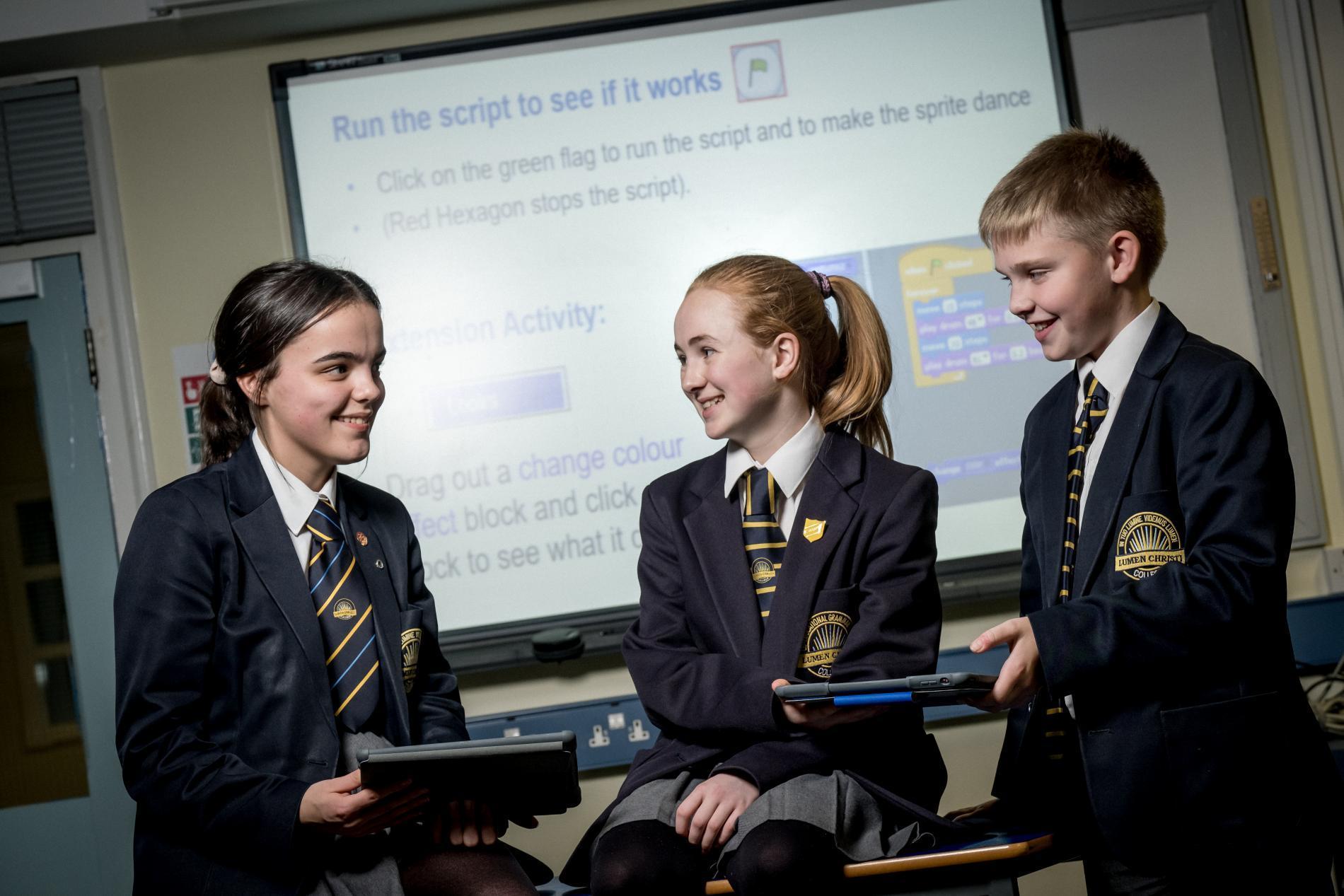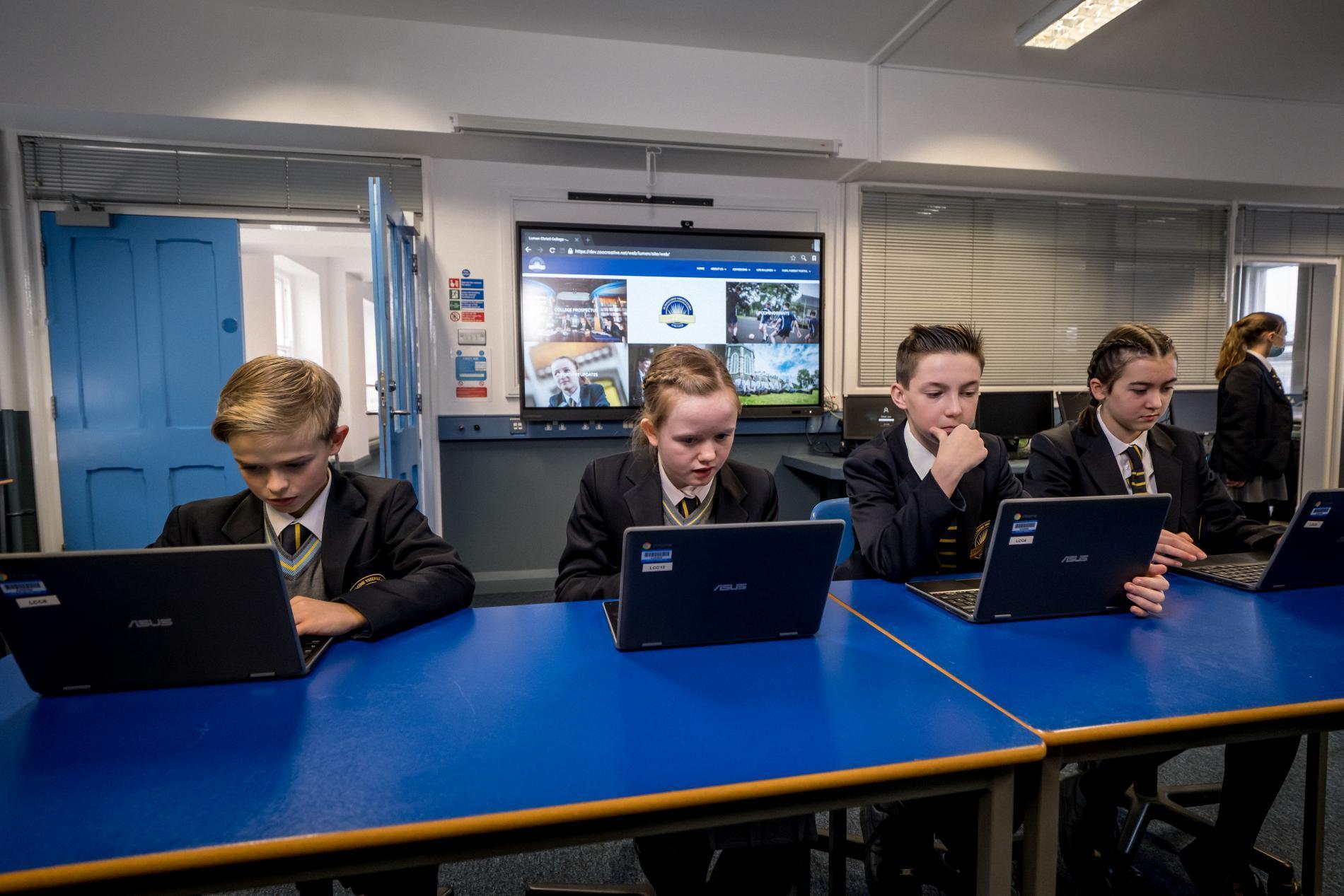ICT
Digital Technology and Software Systems Development are problem-solving subjects: we just have to work out the way to solve the problem … and leave the machine to do the hard work.
 |
 |
From the short introduction at Key Stage 3 through to the most advanced A level projects, pupils develop their ability to define a problem, work out how to address it, then create and test a solution. Through the study of coding, pupils develop computational thinking skills that can be applied within any subject area.
Key Stage 3
Pupils are taught to evaluate and apply information technology. The KS3 ICT curriculum aims to ensure pupils become competent, confident and creative users of information and communication technology. This is achieved through exposing pupils to a broad range of software applications, including cloud-based apps like the Google Suite which incorporates Google Classroom and Microsoft Office 365. Pupils investigate the history of computing and learn about landmark developments from ENIAC to Apple. They learn basic programming skills through Python and apply great creativity in the development of mini-websites and graphic design. Pupils are also taught to use technology safely and are encouraged to protect their online identity and privacy and know how to report concerns.
GCSE
We follow the CCEA GCSE Digital Technology course and offer both the Programming and Multimedia options (when viable). These courses help pupils develop their computing and creativity skills. The programming route enables pupils to acquire robust coding skills through the use of Python or C# and provides a strong foundation for the study of Software Systems Development at A level. The multimedia route encourages high level creativity in the development of websites and promotes an excellent understanding of data processing through the use of database software. The skills developed are relevant everywhere in today’s work-place. Both courses provide pupils with a broad understanding of how computers work and will support them in their use of technology through-out any chosen career path.
A Level
Students study for the either the CCEA Digital Technology or Software Systems Development(SSD) specifications, enjoying the opportunity to write code as part of the exam and to engage with a substantial project for A Level. In, Digital Technology, pupils learn about computer systems and how they are developed. They use high level programming skills to a computerised information system. Those studying SSD will acquire skills in Object Oriented Programming using C#. At A2 level pupils develop a substantial SQL database solution and gain an insight into the agile methodologies used to develop computer based systems. Both subjects provide an excellent basis for further study in Information Technology. SSD is particularly suitable for those interested in a career in Computer Science/Computing, Software Engineering and other related disciplines.
Extra-curricular
Our pupils have done well in the Bebras computational thinking competition, organised by the University of Oxford. We also have had pupils entering cyber-security competitions, programming after school using BBC Micro-bits and engaging in talks from external speakers – recently these have included talks on artificial intelligence, career pathways in IT and Computing and interactions with mentors from the software industry. The annual BCS lecture is a fixed date in our calendar. At this event, senior pupils have the opportunity to hear about ground breaking work the field of computing and to meet potential employers and sponsors at exhibition stands.
Where to next?
Pupils from both A level subjects have progressed to further study in areas such as : Engineering, Finance, Dentistry, Medicine, Law, Actuary, Drama.
Most of our A Level Software Systems Development pupils and some Digital Technology pupils will progress to study Computer Science or Software Engineering at top UK and Irish universities. A number of our pupils have been successful in achieving places on courses such as Software Engineering with Digital Technology Partnership, sponsored by prestigious companies in the field.